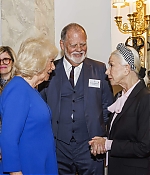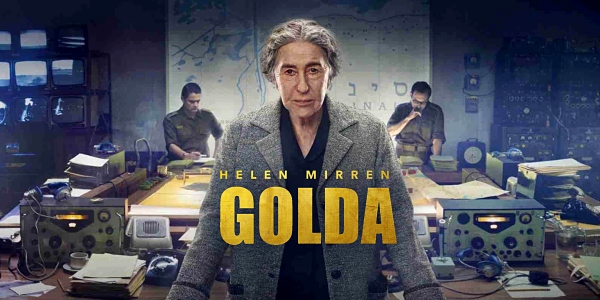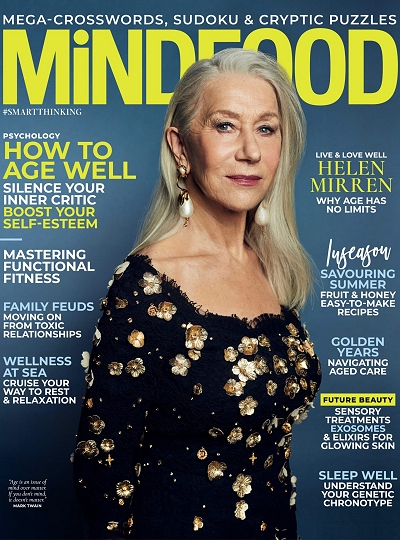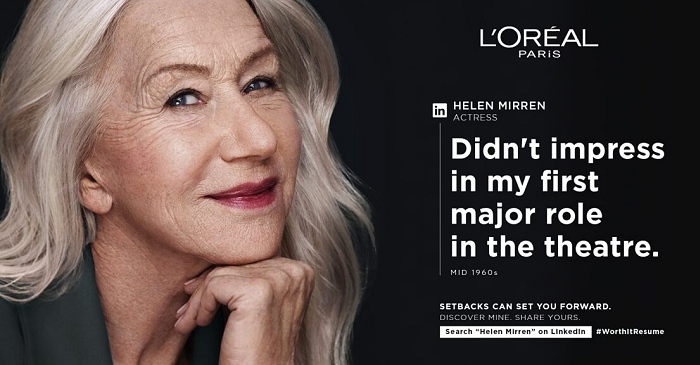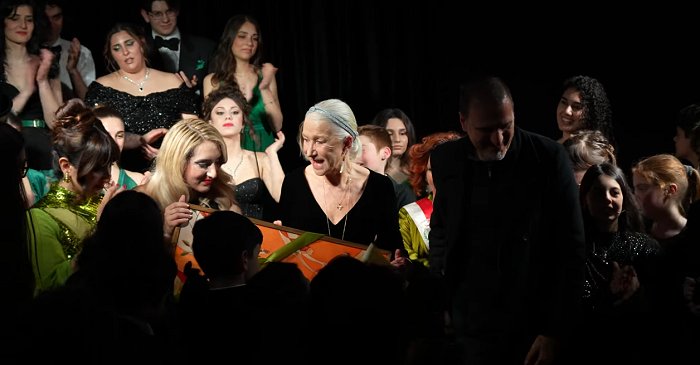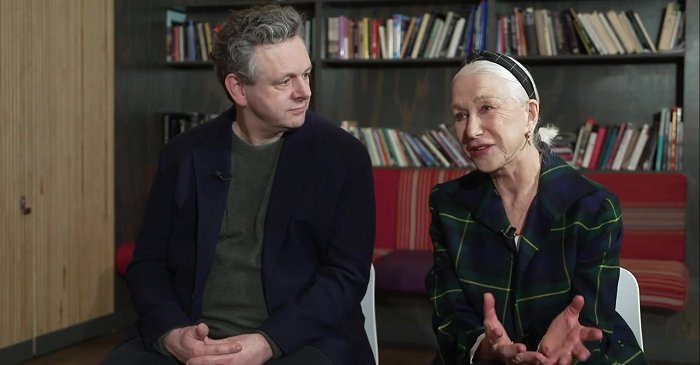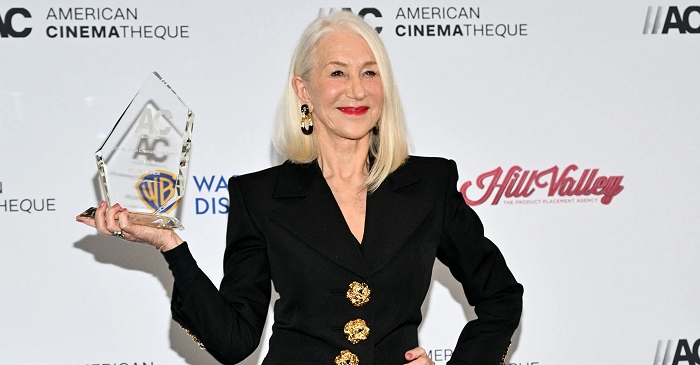
|
Welcome to The Helen Mirren Archives, your premiere web resource on the British actress. Best known for her performances with the Royal Shakespeare Company, "Prime
Suspect" and her Oscar-winning role in "The Queen", Helen Mirren is one of the world's most eminent actors today. This unofficial fansite provides you with all latest
news, photos and videos on her past and present projects. Enjoy your stay.
|
Celebrating
10 years
on the web
|
With so much criticism of British television, why does arguably our finest actor still champion the format? Helen Mirren tells Arifa Akbar why she has faith in our small-screen output, and how THAT role changed her life.
At a time when too few people seem to have a good word for the quality of programming on British television, it is good to know that Dame Helen Mirren is one who does. As the doyenne of British drama, Mirren’s words ought to count for something. In recent months, she has added yet another Royal Television Society award, a Screen Actors Guild award and a Golden Globe to her hefty collection of accolades for her television work. Her part in Granada’s Bafta award-winning Prime Suspect has earned her character, the hard-bitten DCI Jane Tennison, a place in television folklore, while the mini-series Elizabeth I also won Mirren an Emmy.
Able to juggle film and TV work like few other actors, she scooped an Oscar for the lead role in Stephen Frear’s film, The Queen, cementing her reputation in Hollywood. But however big Mirren, 61, has become in the US – she first conquered Hollywood in 2002 following the transatlantic success of Gosford Park – she has always returned to take on meaty roles in television. And, in spite of the criticism directed at the quality of current British drama, she believes there is an immense pool of talent on our small screen. Speaking at the Cannes Film Festival, where Mirren emerged on to the red carpet glittering in Chopard diamonds for the festival’s 60th-anniversary celebrations last week, she talked of the clutch of British television actors who are recognised as hot property by US TV studios. “What is happening more and more is that the American TV industry is looking to British actors because they’ve realised that they’re very good, they speak the same language and they are cheap,” she said.
More and more British faces are emerging on American screens, along with a stream of our programmes that are being remade Stateside. Hugh Laurie and Christopher Eccleston are already big names on US network primetime, with recent additions including the presenter Cat Deeley and former Ballykissangel actress Lena Headey, who has been cast as Sarah Connor in the Terminator spinoff series, as well as Michelle Ryan – best known for playing Zoe Slater on EastEnders – who has earned the lead role in NBC’s planned “reimagination” of the 1970s series The Bionic Woman. In spite of the paltry presence of home-grown films in Cannes this year – with none making it on to the official selection list, in stark contrast to last year when Ken Loach’s The Wind that Shakes the Barley won the Palme D’Or – Mirren predicts an imminent “explosion” of talent. “These things are cyclical. There are films coming in from all over the world at Cannes. That’s a lot of competition, and we got two films in last year,” she said. “As far as British independent films go, there are such exciting young film-makers coming up in Britain. I believe that over the next five years we’ll see an explosion of British talent. The fact that they are not here in Cannes is not relevant. I believe they are going to do great things.” Mirren has won the best actress award at Cannes twice, for her portrayal of the widow of an IRA activist in Pat O’Connor’s 1984 film, Cal, and for her part in Peter Greenaway’s The Cook, The Thief, His Wife and Her Lover.
But she has never been there to collect her prizes, and has mixed memories of her first Cannes experience. “The first time I went to Cannes was with Lindsay Anderson’s, O Lucky Man!. I was doing experimental theatre and came looking like a backpacker with no understanding of the event. They looked at me with surprise because I didn’t fulfil the function of a big-frock diva at all.” Ever since completing Elizabeth I and The Queen, Mirren has opted for lighter film roles to get her “juices back”after those strenuous assignments. “After I did Elizabeth I and Elizabeth II and Prime Suspect, I was very, very drained. They took a lot out of me and doing the roles back to back was hard work.” She is currently working on two US films, Inkheart, adapted from a children’s fantasy novel by Cornelia Funke, and National Treasure: Book of Secrets – starring Jon Voight, Nicolas Cage, Harvey Keitel and Ed Harris – a sequel to the hugely successful 2004 political thriller, National Treasure. “In Book of Secrets, I swing on harnesses over a huge abyss, clinging to Jon Voight. It’s great fun,” she said. And she described Elinor Loredan, her character in Inkheart, as a “mad poetess and an eccentric, a wonderful character who gets caught up in the drama”. “I was very lucky. Two films came along where I could relax, enjoy myself and work with a wonderful cast of actors. It’s nice to work on what I’m doing now. I didn’t want to work at the same intensity,” she said.
“Right now, it’s as much about the people I work with as much as the role itself. I’m just relaxing and getting my juices back. I will have to get serious again at some point. I have to take myself seriously with the next role.” Despite the plaudits she won for The Queen, the part itself was not as demanding as the political and media fallout that accompanied the film. “With The Queen, it was not the role so much as the subsequent attention and the focus on what I would say about the woman and about the whole thing. I was on eggshells because we are talking about a woman who is real and living. Whether that person works at a Sainsbury’s check-out or lives at Buckingham Palace, it’s still a living person and you have to be careful of that.” In March, she issued a statement after a flurry of media reports that had “snubbed” the Queen’s invitation to lunch at Buckingham Palace. In fact she was filming Book of Secrets in South Dakota, not making some sort of republican protest.
After a career that began four decades ago with Shakespeare on the stage and has spanned television and film in almost equal measure, Mirren is regarded by many as an aberration, a woman who has managed to survive in an age-obsessed industry, and someone who somehow manages to increase her market value as the years go by. So, does she believe she has set a new mould for younger British actresses who have cracked Hollywood, and earned them the same career longevity? “No. Beautiful young talented actors from all over the world will always be welcomed in Hollywood. It’s what they want and need. I don’t think that has really changed,” she said. “I think what’s made a difference to women’s acting roles, to be fuddy duddy about it, is feminism. It is women entering the workplace, women entering positions of power, and the knock-on effect is reflected in the drama of the time. After Stella Rimington became head of MI5, it became possible for Judi Dench to play M in the Bond films, and if Ségolène Royal had become President of France, it would have been a very powerful message for producers of drama and the casting of women. It’s more to do with women in real life than anything else.”

